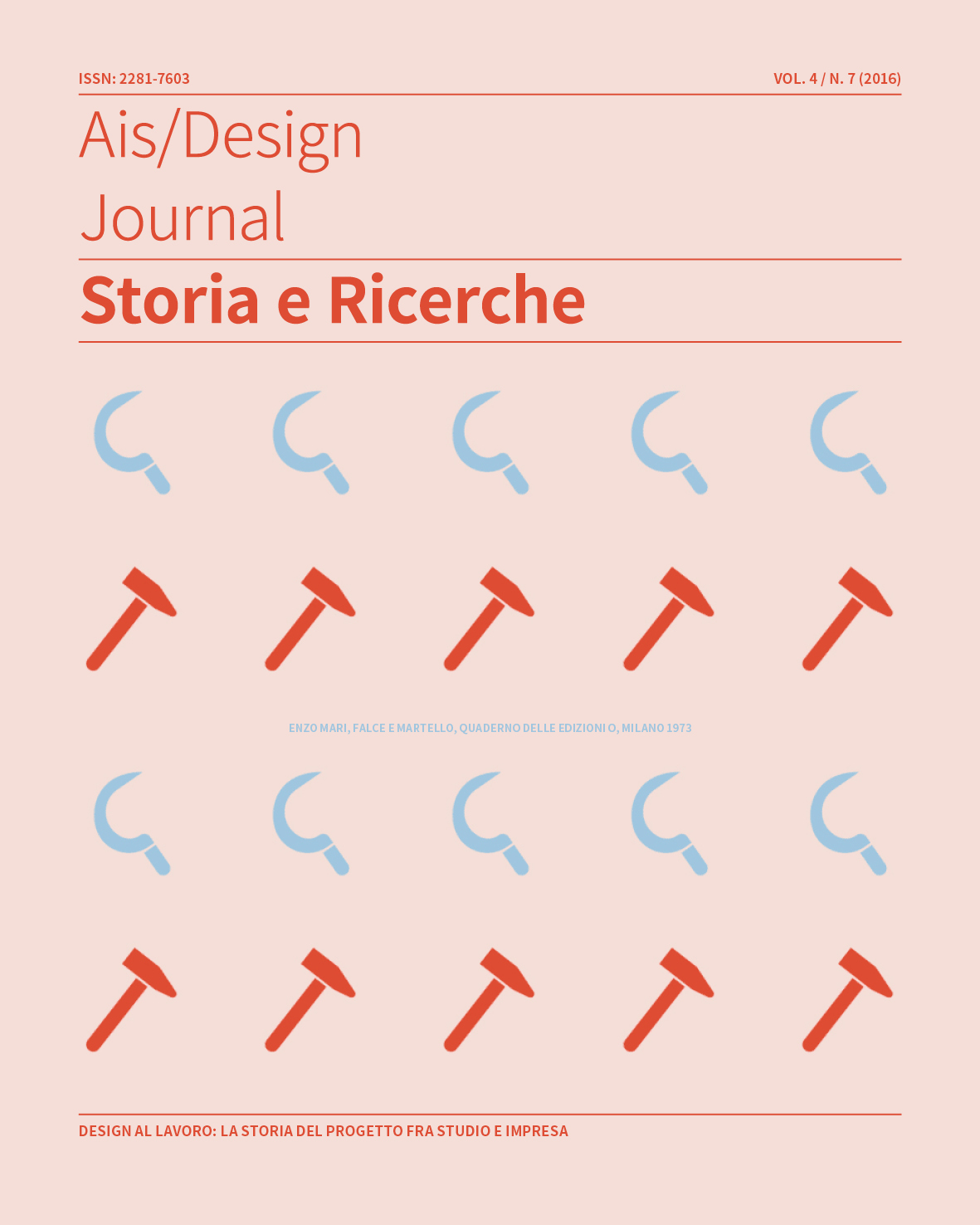Paolo De Poli Craftsman Entrepreneur and Designer
Abstract
The craftsman-entrepreneur is one of the many forms in which design developed during the twentieth century in Italy. A case in point is the artist, craftsman and designer Paolo De Poli who, starting in the mid-1930s, and in particular over the next twenty years during which he worked with Gio Ponti, continued to run a workshop that produced vitreous enamel objects through the 1990s. This article, relying on primary sources from the De Poli archives conserved at the Archivio Progetti Iuav di Venezia, intends to reconstruct the activity and organization of a studio-workshop that conceived, produced, exhibited and sold objects and that, though artisanal in nature, developed production processes that in some ways were influenced by the techniques of standard production. The analysis of the choices made by De Poli makes it possible to reconstruct the contribution of artisanal production to the design culture, demonstrating the validity of an operational model that has largely been ignored by traditional historiography, but now deserves to be reconsidered.
Copyright (c) 2016 Ali Filippini

This work is licensed under a Creative Commons Attribution-NonCommercial-NoDerivatives 4.0 International License.
Creative Commons NonCommercial-NoDerivates 4.0 international License (CC BY-NC-ND 4.0).


